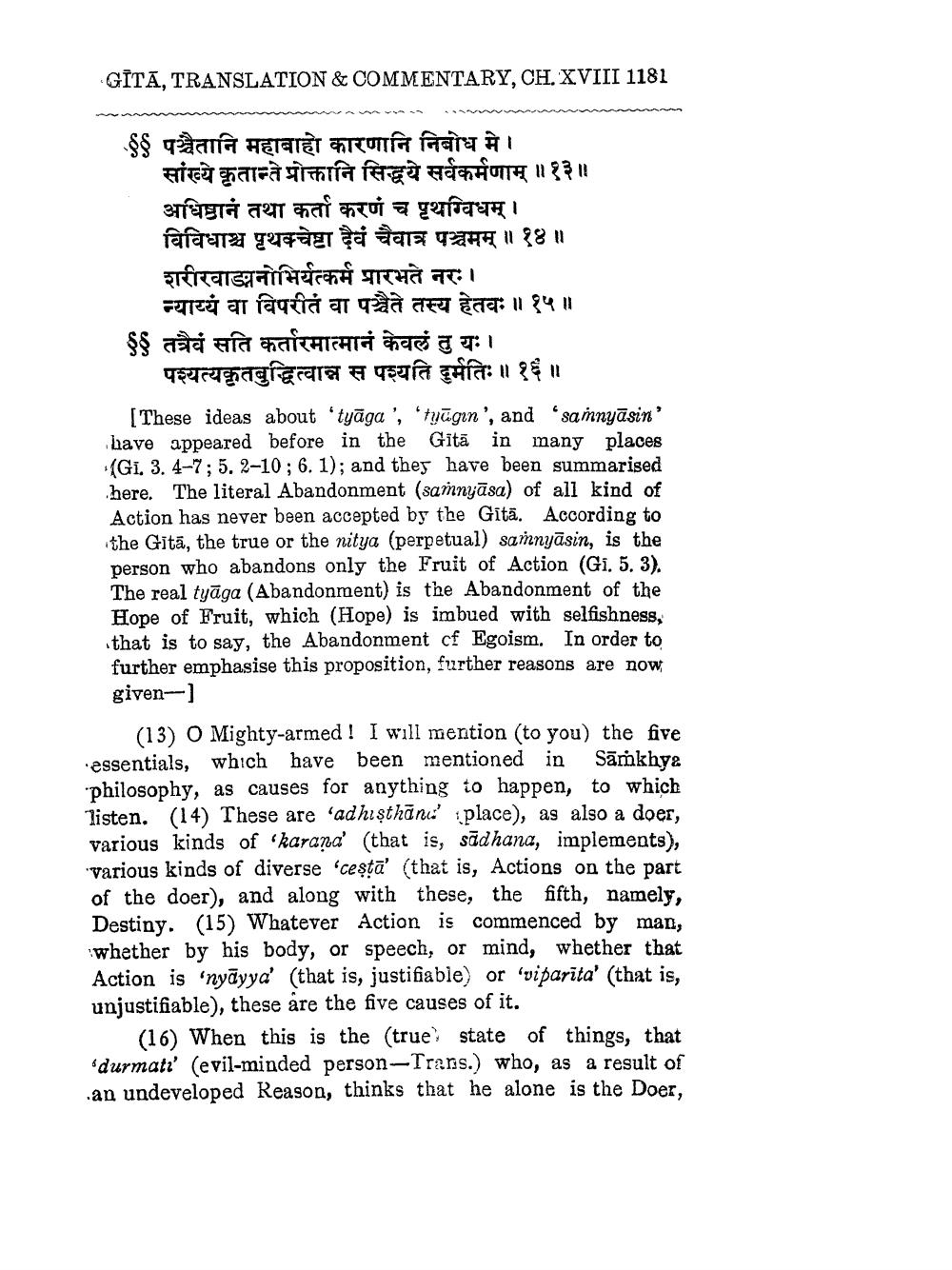________________
GĪTĀ, TRANSLATION & COMMENTARY, CH. XVIII 1181
SS पञ्चैतानि महाबाहो कारणानि निबोध मे । सांख्ये कृतान्ते प्रोक्तानि सिद्धये सर्वकर्मणाम् ॥ १३ ॥ अधिष्ठानं तथा कर्ता करणं च पृथग्विधम् । विविधाश्च पृथक्चेष्टा दैवं चैवात्र पञ्चमम् ॥ १४ ॥
शरीरवाङ्मनोभिर्यत्कर्म प्रारभते नरः । zancá ar fàqûrá ar q3⁄4ầà azur ŝaa: || 24 || 8 तत्रैवं सति कर्तारमात्मानं केवलं तु यः । पश्यत्यकृतबुद्धित्वान्न स पश्यति दुर्मतिः ॥ १६ ॥
[These ideas about 'tyaga', 'tyugin', and 'samnyāsin have appeared before in the Gitā in many places (GI. 3. 4-7; 5. 2-10; 6. 1); and they have been summarised here. The literal Abandonment (samnyasa) of all kind of Action has never been accepted by the Gita. According to the Gita, the true or the nitya (perpetual) samnyasin, is the person who abandons only the Fruit of Action (Gi. 5. 3). The real tyaga (Abandonment) is the Abandonment of the Hope of Fruit, which (Hope) is imbued with selfishness, that is to say, the Abandonment of Egoism. In order to further emphasise this proposition, further reasons are now given-]
(13) O Mighty-armed! I will mention (to you) the five essentials, which have been mentioned in Sāmkhya philosophy, as causes for anything to happen, to which listen. (14) These are 'adhisthand place), as also a doer, various kinds of 'karana' (that is, sadhana, implements), various kinds of diverse 'cesta' (that is, Actions on the part of the doer), and along with these, the fifth, namely, Destiny. (15) Whatever Action is commenced by man, whether by his body, or speech, or mind, whether that Action is 'nyayya' (that is, justifiable) or 'viparita' (that is, unjustifiable), these are the five causes of it.
(16) When this is the (true state of things, that 'durmatı' (evil-minded person-Trans.) who, as a result of an undeveloped Reason, thinks that he alone is the Doer,




